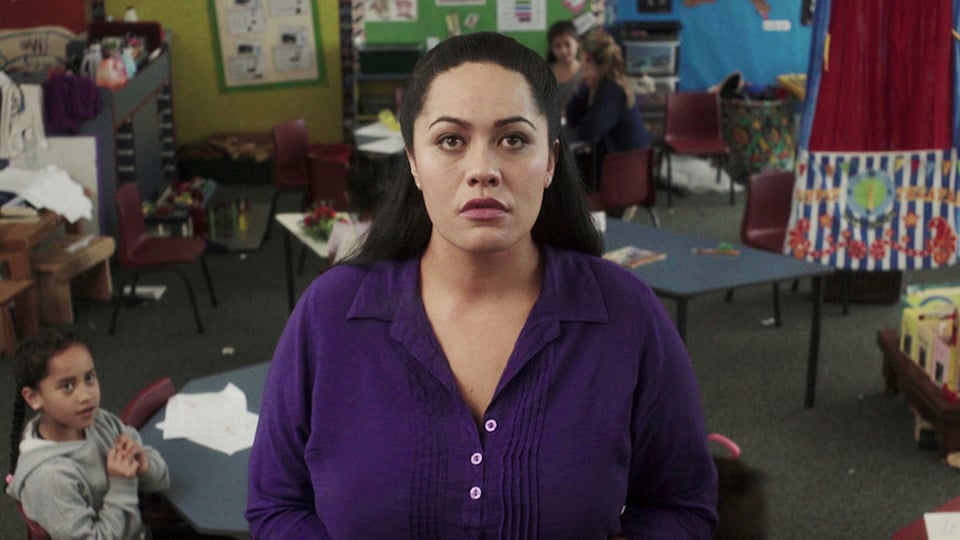This is an incredibly ambitious piece of filmmaking. Eight short films, directed by eight Maori female directors (Briar Grace-Smith, Casey Kaa, Ainsley Gardiner, Katie Wolfe, Chelsea Cohen, Renae Maihi, Paula Jones, Awanui Simich-Pene), all of which are shot in a single take. Each film is linked to the death of a young boy named Waru, who was killed in an act of domestic abuse. The subject of each vignette looks at how his death has impacted those closest to him, and the wider community.
On the day of Waru’s Tangi (Maori funeral rite) we encounter a local matriarch who is catering for the funeral and trying to keep things together; Waru’s teacher, being torn apart by guilt at the thought she could have done more; a mum with kids in Waru’s class, struggling to make ends meet, and feeling isolated and alone; and a young woman who gets home drunk from a night out to find she has locked herself out with her baby left alone in the house.
We also meet a Maori newsreader going off script and standing up to the ignorance in the media; a young girl confronting her abuser and the complicit adults who turn a blind eye; two aunties daring to step in and have the courage to take kids out of a violent and neglectful home; and in the film’s most powerful sequence, the maternal and paternal great grandmothers confront each other over Waru’s final resting place.
Waru is a film that really has something to say. It is a film by and about the Maori people, their beliefs and traditions, and explores what it means to be Maori – specifically a Maori woman in modern New Zealand. But it’s also a state of the nation film. The issues Waru examines through these differing perspectives aren’t just about one community; it is about all of New Zealand.
The eight short films presented here aim to break some of the damaging stereotypes around the culture, and look closely and empathetically at the cycle of addiction, poverty, racism, disenfranchisement, apathy, and ignorance that helps breed the violence in this society.
For the most part, the film is a technical triumph, with the single shot takes orchestrated magnificently. Sweeping from wide into close-ups, in and out of cars and houses, and into high establishing shots, it is bravura filmmaking. I understand the reasons to film it in this way, though I do feel that it strangles some of the performances, which might have benefited from being able to cut and retake.
But technique aside, this is a film driven by heart and emotion. It is incendiary stuff, and you can feel the passion of the filmmakers. I can only imagine how this is being received in New Zealand. These stories aren’t being told this honestly anywhere else. Waru is not a perfect film, but it demands to be seen.


